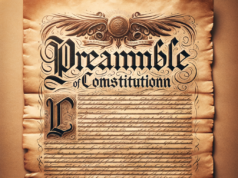In recent months, the landscape of form compliance has undergone significant transformations, prompting organizations across various sectors to reassess their compliance strategies. These changes, driven by evolving regulatory frameworks and heightened scrutiny from governing bodies, have left many businesses scrambling to adapt. This article delves into the recent developments in form compliance regulations, the factors influencing these shifts, the risks associated with non-compliance, and the essential steps organizations must take to navigate this complex environment.
Understanding the Recent Changes in Form Compliance Regulations and Their Implications
The recent changes in form compliance regulations have introduced a myriad of new requirements that organizations must adhere to in order to remain compliant. Regulatory bodies have tightened their standards, focusing on enhancing transparency, accuracy, and accountability in reporting practices. For instance, the introduction of more stringent data collection protocols and the necessity for real-time reporting have become critical components of compliance frameworks. These changes not only aim to protect consumer rights and promote ethical business practices but also impose significant operational challenges for organizations that must now invest in updated systems and training programs to ensure adherence. The implications of these regulations are profound, as non-compliance can lead to severe penalties, reputational damage, and loss of consumer trust.
Key Factors Driving the Shift in Form Compliance Standards Across Industries
Several key factors are driving the shift in form compliance standards across industries. Firstly, the rapid advancement of technology has led to increased data collection capabilities, prompting regulators to establish more rigorous standards to safeguard sensitive information. Additionally, the growing emphasis on corporate governance and accountability has compelled organizations to adopt more robust compliance measures. The rise of consumer awareness and advocacy has also played a pivotal role, as stakeholders demand greater transparency and ethical practices from businesses. Furthermore, the global nature of commerce has necessitated a harmonization of compliance standards, as organizations operating in multiple jurisdictions must navigate a complex web of regulations. These factors collectively underscore the urgent need for businesses to reassess their compliance strategies in light of the evolving regulatory landscape.
Analyzing the Impact of Non-Compliance: Risks and Consequences for Organizations
The risks and consequences of non-compliance with form compliance regulations can be severe and far-reaching. Organizations that fail to meet regulatory standards may face substantial financial penalties, which can significantly impact their bottom line. Beyond monetary fines, non-compliance can result in legal repercussions, including lawsuits and increased scrutiny from regulatory bodies. Furthermore, the reputational damage associated with non-compliance can erode consumer trust and loyalty, leading to a decline in market share. In an era where public perception is increasingly influenced by corporate behavior, organizations must recognize that non-compliance can have lasting effects on their brand image and stakeholder relationships. The potential for operational disruptions and the loss of competitive advantage further emphasize the critical importance of adhering to compliance standards.
Essential Steps for Businesses to Adapt to New Form Compliance Requirements
To effectively adapt to the new form compliance requirements, businesses must undertake several essential steps. First and foremost, organizations should conduct a comprehensive assessment of their current compliance practices to identify gaps and areas for improvement. This assessment should be followed by the development of a strategic compliance plan that outlines specific actions to align with the updated regulations. Investing in training programs for employees is also crucial, as a well-informed workforce is essential for maintaining compliance. Additionally, organizations should leverage technology to streamline compliance processes, utilizing software solutions that facilitate data collection, reporting, and monitoring. Regular audits and reviews of compliance practices will help ensure ongoing adherence to regulations and allow for timely adjustments in response to any future changes.
Expert Insights: Navigating the Complexities of Updated Compliance Frameworks
Experts in the field of compliance emphasize the importance of proactive engagement with regulatory changes to navigate the complexities of updated compliance frameworks. According to compliance specialists, organizations should foster a culture of compliance that prioritizes ethical behavior and accountability at all levels. This involves not only adhering to regulations but also understanding the underlying principles that drive compliance efforts. Additionally, experts recommend establishing strong communication channels between compliance teams and other departments to ensure that compliance considerations are integrated into business decision-making processes. By staying informed about regulatory developments and actively participating in industry discussions, organizations can better anticipate changes and position themselves as leaders in compliance.
Future Trends in Form Compliance: Preparing for Ongoing Changes and Challenges
Looking ahead, organizations must prepare for ongoing changes and challenges in form compliance. As technology continues to evolve, regulatory bodies are likely to implement more sophisticated compliance requirements, particularly in areas such as data privacy and cybersecurity. The increasing globalization of business will also necessitate a more nuanced understanding of international compliance standards, as organizations must navigate varying regulations across jurisdictions. Additionally, the trend towards greater stakeholder engagement and corporate social responsibility will influence compliance practices, as consumers and investors demand more transparency and ethical behavior from businesses. To thrive in this dynamic environment, organizations must remain agile, continuously adapting their compliance strategies to meet emerging challenges and seize opportunities for growth.
In conclusion, the recent developments in form compliance regulations present both challenges and opportunities for organizations across industries. By understanding the implications of these changes, recognizing the factors driving the shift in compliance standards, and taking proactive steps to adapt, businesses can position themselves for success in an increasingly complex regulatory landscape. As the future of form compliance continues to evolve, organizations that prioritize compliance and ethical practices will not only mitigate risks but also enhance their reputation and foster long-term sustainability.








